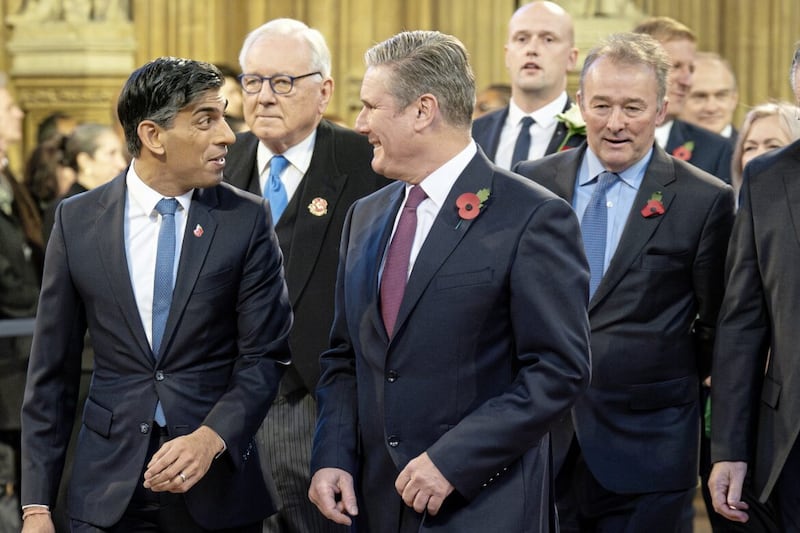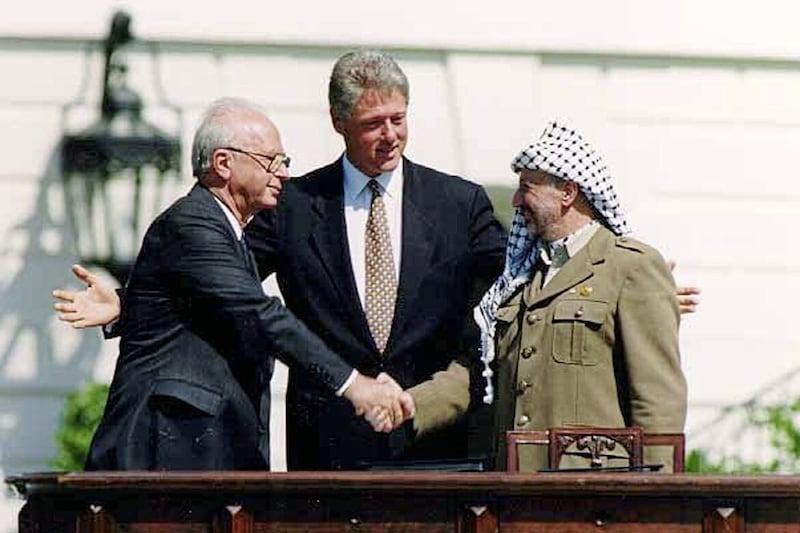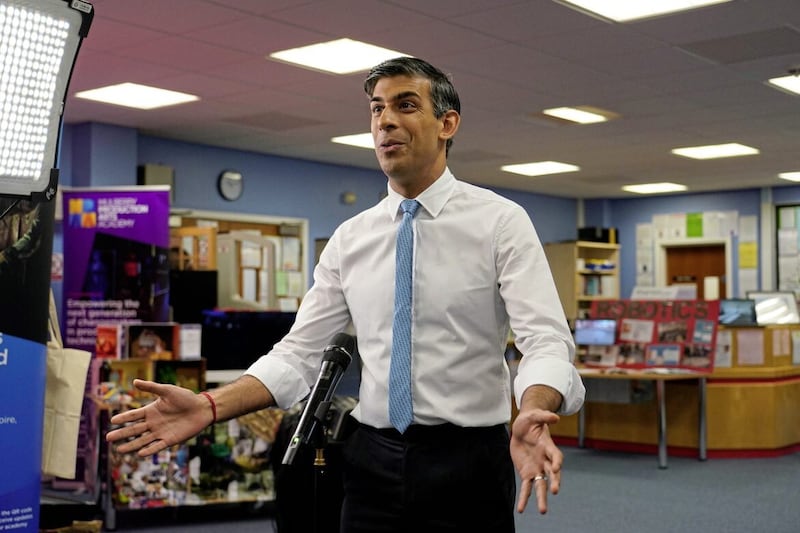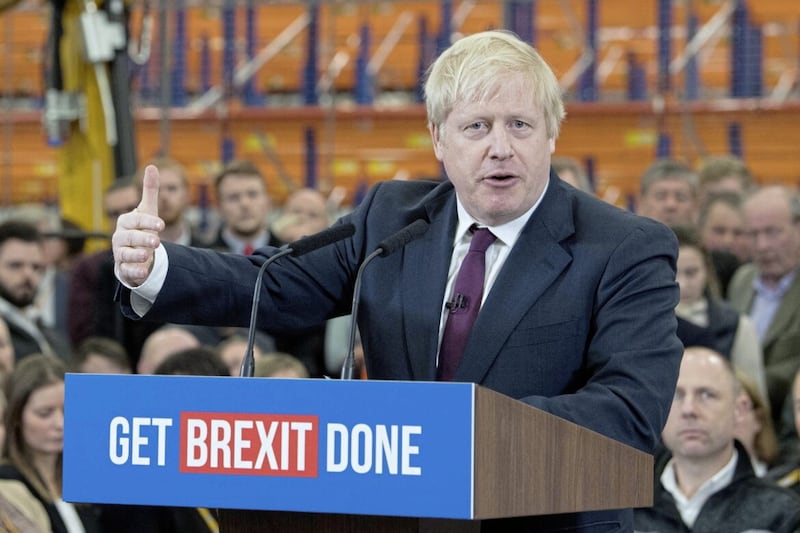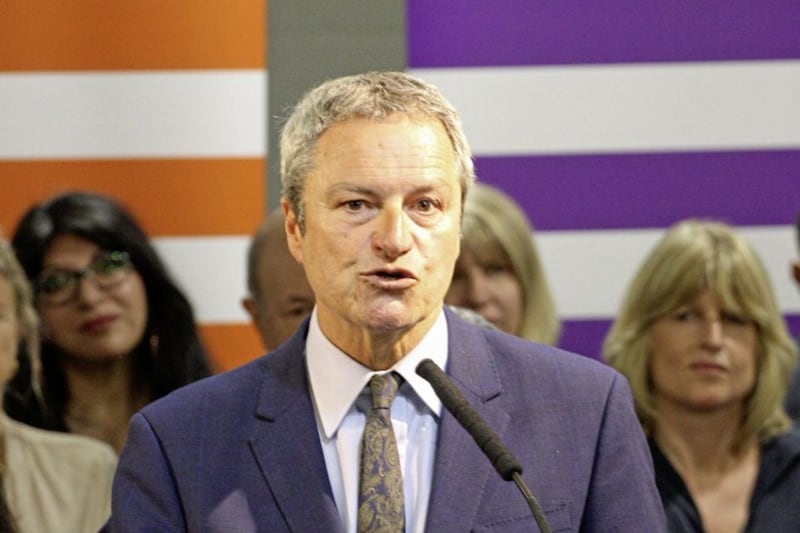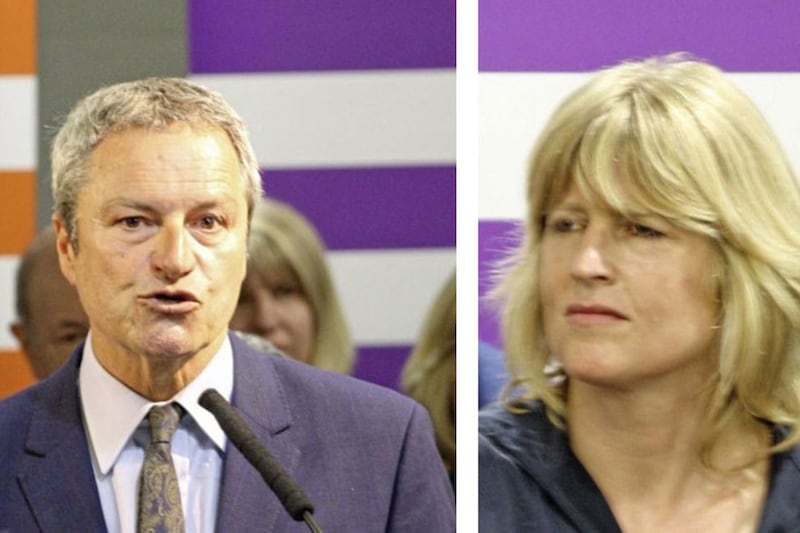The most important weapon in the arsenal of any politician is – obviously – their words.
The words can be rousing, even when misquoted. At the start of the Falklands war, Mrs Thatcher celebrated the early capture of South Georgia by by lecturing journalists, "Just rejoice at that news and congratulate our forces and the Marines”. She later repeated the word “rejoice” and is often slightly misquoted as saying “rejoice, rejoice”, as an example of her supposed triumphalism.
More up to date, Donald Trump’s speaking style – whatever you think of his politics – brilliantly cuts through our daily blizzard of information. Even if you are hard pushed to remember any significant Trump policies, you will inevitably remember his constantly repeated four word vocabulary: Make America Great Again. It became “MAGA” and it fits on a baseball cap.
Read More
- Rishi Sunak fails to hand over pandemic WhatsApp messages to Covid inquiry – reports
- Sunak facing backlash as he is poised to announce scrapping HS2 to Manchester
- Sunak makes pitch to Tory right as Truss draws conference crowd
Like the rest of Trump’s speaking style, it manages to be simple, memorable, repetitive and (for supporters) engaging. For the rest of us it’s vacuous and meaningless.
Back in June 2015, when he first announced he was running for the presidency, Trump assured supporters in similar repetitive style, driving home a simple message: “I’m the most successful person ever to run for the presidency, by far. Nobody’s ever been more successful than me. I’m the most successful person ever to run.” Three self-aggrandising “successfuls” in three sentences.
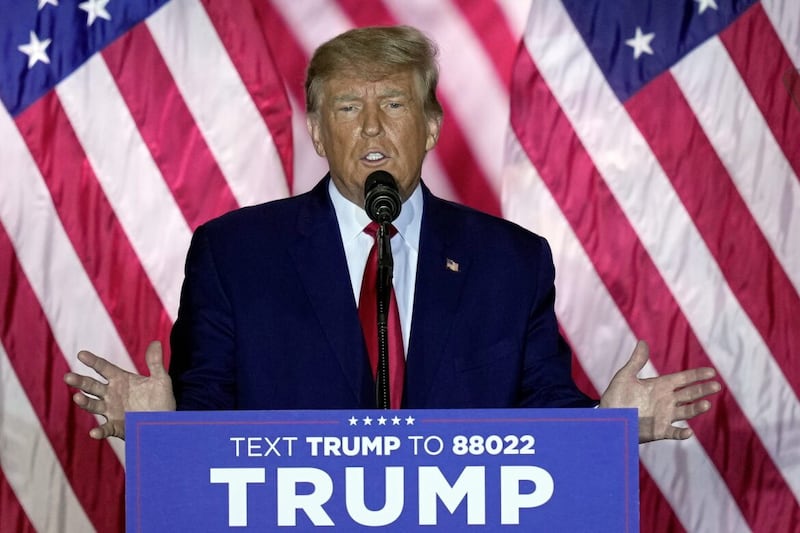
The American writer Philip Roth was revolted by what he saw as Trump’s juvenile speaking style. He described America’s 45th president as “ignorant of government, of history, of science, of philosophy, of art, incapable of expressing or recognising subtlety or nuance, destitute of all decency, and wielding a vocabulary of 77 words that is better called Jerkish than English”.
American analysts from Factbase put it slightly differently. They said Trump’s vocabulary and grammatical structure were those of the average child aged from seven to 13.
But so what? You may dislike Trump or Thatcher or any other politician but their success in part was based precisely on how their words cut through our information overload and social media clickbait.
And so I’ve been paying particular attention to the vocabulary of Britain’s current prime minister, Rishi Sunak. True, he dodges difficult questions such as whether he is in favour of the HS2 high speed rail link going from London to the great cities of northern England. But that’s not unknown in politics.
Read more:
Sunak makes pitch to Tory right as Truss draws conference crowd
Hunt distances himself from Braverman's migration speech
Gavin Esler: I'm suffering an acute case of BOBES – Bored Of Brexit Excuses Syndrome
More interesting is how often enthusiastic, boosterish, adolescent adjectives and adverbs appear in his talk – fantastic, incredible, lovely, wonderful.
At a time when the Home Secretary Suella Braverman said that multiculturalism in Britain was a failed and “misguided dogma”, Sunak bounced back like an excitable teenager. The UK has done “a fantastic job of integrating people into society”, he said, to create “a fantastic multicultural democracy”.
Sunak’s own mother came from Leicester – “a place I know incredibly well” – and “we have done an incredible job” of integrating people, and one of the “lovely things” about being prime minister is that it is a “wonderful thing” that in politics being from a south Asian background was “not a big deal in our country”.
Personally, I agree that it is fantastic, lovely, incredible, wonderful – or just plain “positive” – that the mayor of Britain's greatest city, London (Sadiq Khan), the leader of the Scottish National Party (Humza Yousaf) and the leader of the Labour party in Scotland (Anas Sarwar), plus Sunak himself, all have south Asian roots, and that multiculturalism has not “failed”.
But if Mrs Thatcher’s vocabulary suggested triumphalism and Donald Trump’s limited use of words seem juvenile and “Jerkish”, what does the adolescent-sounding enthusiastic vocabulary tell us about Rishi Sunak?
Could it be that he secretly recognises the dismal state of British public services, health care, our cost of living crisis and Brexit and is trying to be Britain’s Booster-in-Chief? The words are clearly an attempt to cheer us all up. But is that because his policies may do the reverse.


